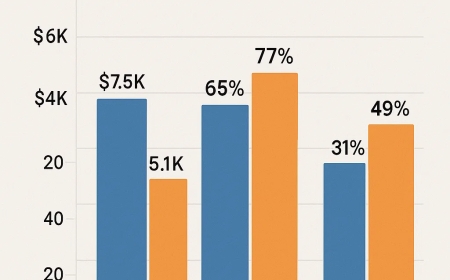Ecocriticism as an Emerging Academic Theory
Introduction to Ecocriticism
Ecocriticism, an interdisciplinary field of literary and cultural studies, examines the relationship between literature, culture, and the natural environment. Emerging in the late 20th century, it responds to growing concerns about environmental degradation and humanity's role in it. As climate change and ecological crises dominate global discourse, ecocriticism offers a framework to analyze how texts represent nature, human-nature interactions, and environmental ethics. By integrating insights from literature, philosophy, and environmental science, ecocriticism encourages scholars to rethink humanitys place in the natural world. To ensure the credibility of research in this field, tools like the citation validator are invaluable for verifying sources, ensuring academic rigor in ecocritical studies.
Ecocriticism is not just a literary lens but a call to action, urging readers to reconsider their environmental responsibilities. It challenges anthropocentric views, advocating for a more ecocentric perspective that values all forms of life. This blog explores ecocriticisms rise as an academic theory, its core principles, and its relevance in todays world, connecting literary analysis with pressing ecological concerns.
The Roots and Evolution of Ecocriticism
Ecocriticism gained traction in the 1990s, with scholars like Cheryll Glotfelty and Lawrence Buell shaping its foundations. Glotfelty, a key figure, defined ecocriticism as the study of the relationship between literature and the physical environment, akin to how feminist criticism examines gender. Early ecocritical works focused on nature writing, such as the works of Henry David Thoreau or Rachel Carson, but the field has since expanded to include urban environments, climate fiction, and postcolonial perspectives.
The theorys evolution reflects growing environmental awareness. As industrialization and globalization intensified ecological challenges, ecocriticism emerged as a way to critique cultural narratives that justify environmental exploitation. It draws from diverse disciplines, including ecology, anthropology, and ethics, to explore how texts shape perceptions of nature. For researchers, maintaining academic integrity in such interdisciplinary work is crucial, often requiring tools like those for regulatory review definition to ensure compliance with scholarly standards.
Core Principles and Applications
Ecocriticism operates on several key principles. First, it emphasizes interconnectedness, viewing humans as part of a larger ecological system. Second, it critiques anthropocentrism, challenging narratives that prioritize human needs over environmental health. Third, it promotes environmental justice, addressing how ecological issues disproportionately affect marginalized communities. These principles allow ecocritics to analyze texts ranging from Romantic poetry to dystopian novels, uncovering how literature reflects or resists environmental ideologies.
For example, ecocriticism might explore how Margaret Atwoods The Handmaids Tale parallels ecological collapse with social oppression, highlighting the intersection of human and environmental exploitation. Similarly, it can examine indigenous narratives that emphasize sustainable living, offering alternatives to Western consumerist models. By connecting literature to real-world issues, ecocriticism bridges the gap between academia and activism.
Why Ecocriticism Matters Today
Ecocriticisms relevance lies in its ability to address urgent global challenges. As climate change accelerates, the theory provides tools to analyze cultural responses to environmental crises. It encourages readers to question narratives that normalize ecological destruction and to seek stories that promote sustainability. In academia, ecocriticism fosters interdisciplinary collaboration, enriching fields like literature, environmental science, and social justice.
Moreover, ecocriticism empowers individuals to engage with environmental issues critically. By studying how texts shape our understanding of nature, readers can develop a deeper ecological consciousness. This makes ecocriticism not just an academic theory but a vital framework for fostering a sustainable future.
Conclusion
Ecocriticism, as an emerging academic theory, offers a powerful lens for understanding the interplay between culture and the environment. By analyzing texts through an ecological perspective, it challenges us to rethink our relationship with the natural world. As environmental crises intensify, ecocriticisms role in academia and beyond will only grow, making it a crucial tool for scholars, activists, and readers alike.








&srotate=0)

























